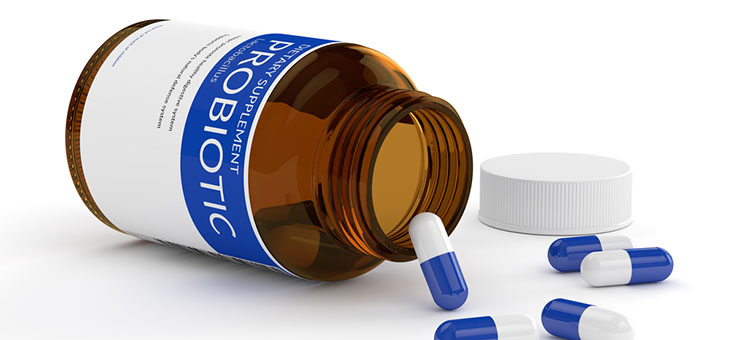Every day, millions of people take probiotics – preparations containing live bacteria that are meant to fortify their immune systems, prevent disease or repair the adverse effects of antibiotics.
Yet the benefits of probiotics have not really been medically proven.
It is not even clear if probiotic bacteria really colonise the digestive tract or, if they do, what effects these have on humans and their microbiomes – the native bacteria in their guts.
In two back-to-back reports published in Cell, researchers at the Weizmann Institute of Science show – in both mice and in humans – that a probiotic preparation of 11 strains of the most widely used probiotic families may sometimes be less-than-beneficial for users and their microbiome.
“Our results suggest that probiotics should not be universally given to the public as a ‘one size fits all’ supplement,” explained lead author Professor Eran Elinav.
“Instead, they could be tailored to each individual and their particular needs. Our findings even suggest how such personalisation might be carried out.”
For the first study, 25 human volunteers underwent upper endoscopy and colonoscopy to sample their baseline microbiome composition and function in different gut regions.
Fifteen of those volunteers were then divided into two groups: the first were administered the 11-strain probiotic preparation, and the second were given placebo pills.
Three weeks into the four-week treatment, all participants underwent a second upper endoscopy and colonoscopy to assess their response to the probiotics or placebo, and they were then followed for an additional two months.
The researchers discovered that probiotics’ gut colonisation was highly individual and fell into two main groups – persisters or resisters. The ‘persisters’ guts hosted the probiotic microbes while the microbiomes of ‘resisters’ expelled them.
The team found they could predict whether a person would be a persister or resister just by examining their baseline microbiome and host gene expression profile.
Persisters, they noted, exhibited changes to their native microbiome and gut gene expression profile, while resisters did not have such changes.
In the second study, the researchers administered wide-spectrum antibiotics to 21 human volunteers, who then underwent an upper endoscopy and colonoscopy to observe any changes to the gut and its microbiome.
Next, the volunteers were randomly assigned to one of three groups. The first was a “watch and wait” group, letting their microbiome recover on its own. The second group was administered the 11-strain probiotic preparation over a four-week period. The third group was treated with an autologous fecal microbiome transplant (aFMT), made up of their own bacteria that had been collected before they were given the antibiotic.
Probiotics, after the antibiotic had cleared the path, could easily colonise the human gut – more so than in the previous study in which antibiotics had not been given.
To the team’s surprise, the probiotics’ gut colonisation prevented both the host gut’s gene expression and their microbiome from returning to their normal pre-antibiotic configurations for months afterward.
In contrast, autologous FMT resulted in the native gut microbiome recolonising and the gut gene expression profile returning to normal within days.
“These results reveal a new and potentially alarming adverse side effect of probiotic use with antibiotics that might even bring long-term consequences,” Prof. Elinav explained. “In contrast, personalised treatment – replenishing the gut with one’s own microbes – was associated with a full reversal of the drugs’ effects.”
Since probiotics are among the world’s most traded over-the-counter supplements, these results may have immediate, broad implications.
Do you use probiotics? Do you think that they work for you?
Related articles:
Broken bones increase death risk
Why you recoil from bitter tastes
Existing drug could treat Alzheimer’s
Disclaimer: This article contains general information about health issues and is not advice. For health advice, consult your medical practitioner.

